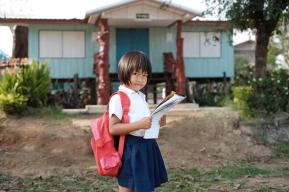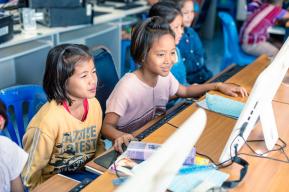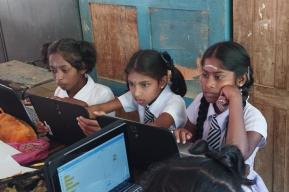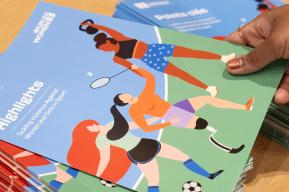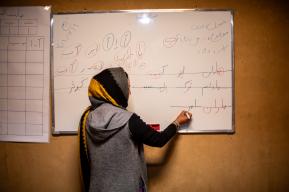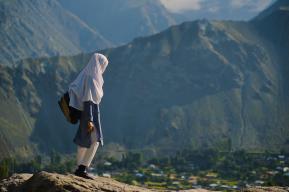After the establishment of the provisional government of Afghanistan in 2001, she was able to go to school and start attending formal education. Throughout the years, despite numerous life challenges she got married and pursued a Bachelor degree in the field of Journalism, followed by a Master`s degree in International Relations. She started a career in journalism and even made it as a presenter in a live TV programme. Unfortunately, her career in journalism ended abruptly after receiving direct threats due to her presence on TV.
She firmly believes that `social misery has its roots in illiteracy and people`s perception can only be changed through education and gaining knowledge which will lead to awareness and behavioral change`. Later in life she established a private school in Kabul with the aim to serve future generations of women and girls. She innovatively allocated a 15-minute daily routine discussion on the importance of education in her school. At the same time, she served in several private universities as a lecturer on journalism related topics.
Eqlima`s passion for women`s literacy never left her mind, and she started a literacy class for 20 women, taking place three times per week in her home, provided by one of the teachers from her private school. She believes that `education for women is one of the most fundamental human rights contributing to gender parity. If we make a woman literate, we automatically make an entire generation literate. I therefore provided free teaching and learning materials to these women in my home literacy course and now they are happy that they can support their children with their homework.” Her initiatives supporting education for women in Afghanistan have no limits and Eqlima continuously strives for more innovative and improved ways to advance this cause. Eqlima has been an active participant in the Basic General Literacy workshops conducted by UNESCO, the facilitator trainings and is specifically responsible and provide management of UNESCO Basic General Literacy classes.




